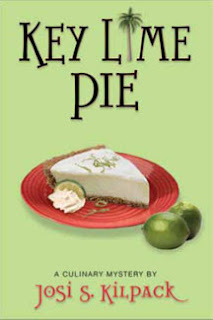by Julie Coulter Bellon
First of all, the true Christmas story compilation booklet that I am a part of got a great review on Meridian Magazine today! Click
here to read it.
The Christmas season is upon us and I am marinating in Christmas spirit and family traditions. I love Christmas! There are stories and activities that our children look forward to doing every year and it really adds to the spirit of our holiday season. Today I wanted to share with you a video and two of my favorite Christmas stories. (As a disclaimer, the stories were going around the web for years so I’m not sure if they’re true or not, or even who to attribute them to, but I love their message anyway.)
There is just something so special to me about Christmas and children, and how the spirit of giving and love just seems to permeate the Christmas season. It is also a time of year when memories that last a lifetime are made and remembered. I hope that you find these things inspirational, like I have, and I hope you hold your loved ones a little closer this time of year.
The Christmas VideoThis Youtube video is about a little boy who, at thirteen months, was diagnosed with leukemia and how his family and community came together to give him one last Christmas. Click
here to watch it.
The Christmas StoriesThe TeacherJean Thompson stood in front of her fifth-grade class on the very first day of school in the fall and told the children a lie. Like most teachers, she looked at her pupils and said that she loved them all the same, that she would treat them all alike. And that was impossible because there in front of her, slumped in his seat on the third row, was a little boy named Teddy Stoddard.
Mrs. Thompson had watched Teddy the year before and noticed he didn't play well with the other children, that his clothes were unkept and that he constantly needed a bath. And Teddy was unpleasant.
It got to the point during the first few months that she would actually take delight in marking his papers with a broad red pen, making bold X's and then marking the F at the top of the paper biggest of all. Because Teddy was a sullen little boy, no one else seemed to enjoy him, either.
At the school where Mrs. Thompson taught, she was required to review each child's records and put Teddy's off until last. When she opened his file, she was in for a surprise. His first-grade teacher wrote, "Teddy is a bright, inquisitive child with a ready laugh." "He does his work neatly and has good manners...he is a joy to be around."
His second-grade teacher wrote, "Teddy is an excellent student well-liked by his classmates, but he is troubled because his mother has a terminal illness and life at home must be a struggle."
His third-grade teacher wrote, "Teddy continues to work hard but his mother's death has been hard on him. He tries to do his best but his father doesn't show much interest and his home life will soon affect him if some steps aren't taken."
Teddy's fourth-grade teacher wrote, "Teddy is withdrawn and doesn't show much interest in school. He doesn't have many friends and sometimes sleeps in class. He is tardy and could become a problem."
By now Mrs. Thompson realized the problem, but Christmas was coming fast. It was all she could do, with the school play and all, until the day before the holidays began and she was suddenly forced to focus on Teddy Stoddard.
Her children brought her presents, all in beautiful ribbon and bright paper, except for Teddy's, which was clumsily wrapped in the heavy, brown paper of a scissored grocery bag. Mrs. Thompson took pains to open it in the middle of the other presents.
Some of the children started to laugh when she found a rhinestone bracelet with some of the stones missing, and a bottle that was one-quarter full of cologne. She stifled the children's laughter when she exclaimed how pretty the bracelet was, putting it on, and dabbing some of the perfume behind the other wrist. Teddy Stoddard stayed behind just long enough to say, "Mrs. Thompson, today you smelled just like my mom used to."
After the children left she cried for at least an hour. On that very day, she quit teaching reading, writing, and speaking. Instead, she began to teach children. Jean Thompson paid particular attention to one they all called "Teddy."
As she worked with him, his mind seemed to come alive. The more she encouraged him, the faster he responded. On days where there would be an important test, Mrs. Thompson would remember that cologne. By the end of the year he had become one of the smartest children in the class and...well, he had also become the "pet" of the teacher who had once vowed to love all of her children exactly the same.
A year later she found a note under her door, from Teddy, telling her that of all the teachers he'd had in elementary school, she was his favorite. Six years went by before she got another note from Teddy.
He then wrote that he had finished high school, third in his class, and she was still his favorite teacher of all time.
Four years after that, she got another letter, saying that while things had been tough at times, he'd stayed in school, had stuck with it, and would graduate from college with the highest of honors. He assured Mrs. Thompson she was still his favorite teacher.
Then four more years passed and yet another letter came. This time he explained that after he got his bachelor's degree, he decided to go a little further. The letter explained that she was still his favorite teacher, but that now his name was a little longer. The letter was signed, Theodore F. Stoddard, M.D.
The story doesn't end there. You see, there was yet another letter that Spring. Teddy said he'd met this girl and was to be married. He explained that his father had died a couple of years ago and he was wondering...well, if Mrs. Thompson might agree to sit in the pew usually reserved for the mother of the groom. And guess what, she wore that bracelet, the one with several rhinestones missing. And I bet on that special day, Jean Thompson smelled just like...well, just like the way Teddy remembered his mother smelling on their last Christmas together.
The EnvelopeIt's just a small, white envelope stuck among the branches of our Christmas tree. No name, no identification, no inscription. It has peeked through the branches of our tree for the past 10 years or so. It all began because my husband Mike hated Christmas-oh, not the true meaning of Christmas, but the commercial aspects of it-overspending, the frantic running around at the last minute to get a tie for Uncle Harry and the dusting powder for Grandma-the gifts given in desperation because you couldn't think of anything else.
Knowing he felt this way, I decided one year to bypass the usual shirts, sweaters, ties and so forth. I reached for something special just for Mike. The inspiration came in an unusual way.
Our son Kevin, who was 12 that year, was wrestling at the junior level at the school he attended; and shortly before Christmas, there was a non-league match against a team sponsored by an inner-city church, mostly black. These youngsters, dressed in sneakers so ragged that shoestrings seemed to be the only thing holding them together, presented a sharp contrast to our boys in their spiffy blue and gold uniforms and sparkling new wrestling shoes. As the match began, I was alarmed to see that the other team was wrestling without headgear, a kind of light helmet designed to protect a wrestler's ears. It was a luxury the ragtag team obviously could not afford. Well, we ended up walloping them. We took every weight class. And as each of their boys got up from the mat, he swaggered around in his tatters with false bravado, a kind of street pride that couldn't acknowledge defeat. Mike, seated beside me, shook his head sadly, "I wish just one of them could have won," he said. "They have a lot of potential, but losing like this could take the heart right out of them."
Mike loved kids-all kids-and he knew them, having coached little league football, baseball and lacrosse. That's when the idea for his present came. That afternoon, I went to a local sporting goods store and bought an assortment of wrestling headgear and shoes and sent them anonymously to the inner-city church. On Christmas Eve, I placed the envelope on the tree, the note inside telling Mike what I had done and that this was his gift from me. His smile was the brightest thing about Christmas that year and in succeeding years. For each Christmas, I followed the tradition-one year sending a group of mentally handicapped youngsters to a hockey game, another year a check to a pair of elderly brothers whose home had burned to the ground the week before Christmas, and on and on. The envelope became the highlight of our Christmas. It was always the last thing opened on Christmas morning and our children, ignoring their new toys, would stand with wide-eyed anticipation as their dad lifted the envelope from the tree to reveal its contents.
As the children grew, the toys gave way to more practical presents, but the envelope never lost its allure. The story doesn't end there. You see, we lost Mike last year due to dreaded cancer. When Christmas rolled around, I was still so wrapped in grief that I barely got the tree up. But Christmas Eve found me placing an envelope on the tree, and in the morning, it was joined by three more. Each of our children, unbeknownst to the others, had placed an envelope on the tree for their dad. The tradition has grown and someday will expand even further with our grandchildren standing around the tree with wide-eyed anticipation watching as their fathers take down the envelope. Mike's spirit, like the Christmas spirit, will always be with us.
May we all remember the true Christmas spirit this year and always.




















